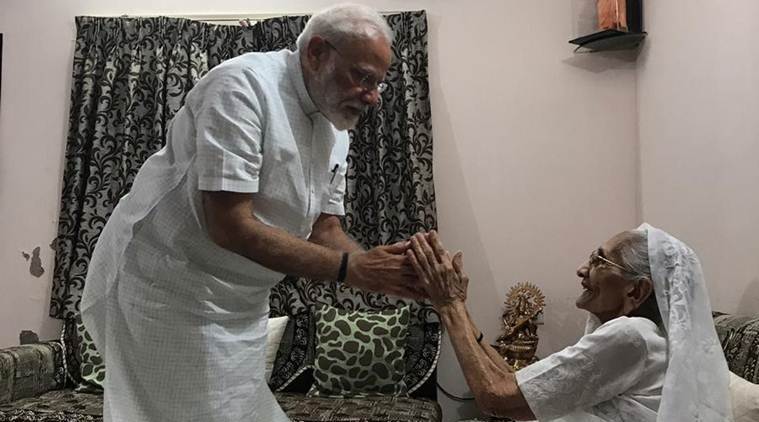
IN THE light of the Surat fire tragedy that killed 22 students, celebrations were toned down as Prime Minister Narendra Modi and BJP president Amit Shah arrived in Ahmedabad on Sunday to thank the people of Gujarat for the party’s massive Lok Sabha polls win.
Modi paid tributes to the dead students, saying he was in two minds over attending the felicitatation and that he finally decided to do so as it was “my duty to pay obeisance to the land which cultivated me”.
The former BJP state headquarters is located at J P Chowk in Khanpur, and it was from here that Modi addressed a crowd. J P Chowk itself is named so in memory of Jayaprakash Narayan, who had organised a public meeting here during the Emergency.
Calling the Surat incident heartbreaking, Modi said, “On the one hand there was kartavya (duty), and on the other karuna (compassion)… At a time of a world event like this (the NDA’s win), if I do not offer my obeisance to this land, I feel I would be ungrateful.”
He thanked the Gujarat BJP for dedicating the event to the Surat victims, Modi said he was in touch with the Gujarat government over the matter. In tune with the PM’s instructions, Gujarat BJP leaders did not beat drums, play musical instruments, or offer mementos as part of Modi and Shah’s welcome.
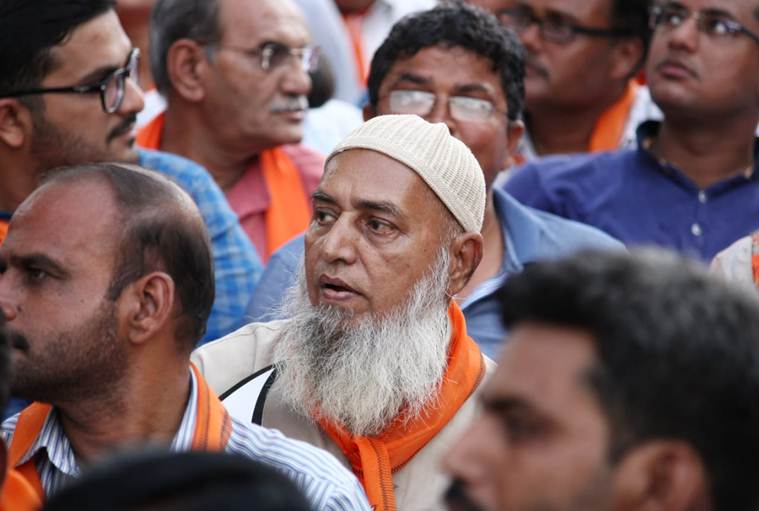
In his 30-odd minutes speech, Modi recollected his tenure in Gujarat as CM from 2001 to 2014, and as a party worker starting 1984. He said Gujarat had taught him a lot, that had come in handy in governance as PM.
Khanpur a significant choice of venue
The choice of the venue, the Muslim-dominated Khanpur area in Ahmedabad, was significant, coming a day after Modi told NDA MPs in the Central Hall of Parliament that his government wanted to carry everyone along — those who had voted for him and those who hadn’t. The last time Modi held a major public meeting in Khanpur was in 2012, after being re-elected as Gujarat CM.
Saying Gujarat’s “progress” had left an impact on people outside the state too, Modi talked about an interview he had seen on social media of an elderly woman from West Bengal. “She used to chant ‘Modi, Modi’… The man (interviewer) asked her the reason. The woman said she was on a pilgrimage to Gujarat and found it like heaven. She was then asked whom she will vote for. She got confused, then said quietly that she will give her vote to the Communist party’s sickle. Asked why, she said one could not speak up here (in Bengal), otherwise one would get killed.”
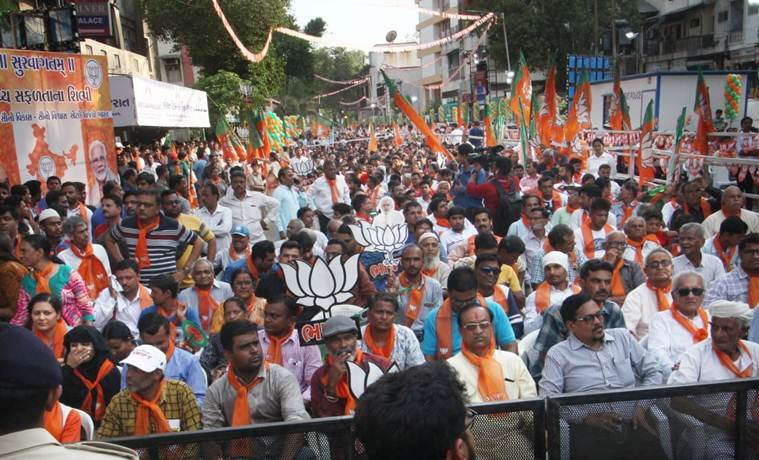
The PM said that during the campaign, he had seen a ‘pro-incumbency’ vote, people wanted to strengthen the government as they believed it would guarantee them security and prosperity. “I told the national president (Amit Shah), ‘I do not think we are fighting these elections. The elections are being fought neither by candidates, nor by the BJP nor Modi. The elections are being fought by the people’. After Independence, such large-scale voting has never happened.”
A number of records had been broken in the polls, Modi added, pointing out that the BJP had won all the 26 Gujarat seats twice. In Assembly terms, out of the total 182 Assembly segments, the BJP had won in 173, he said.
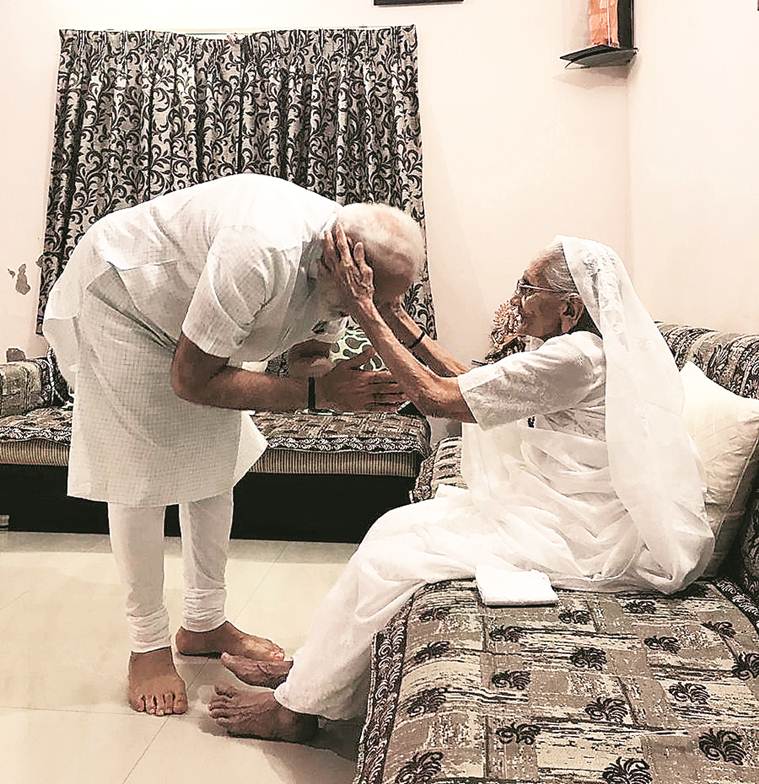
Modi cautioned party workers to maintain “vivek (intellect)”, “maryada (restraint)” and “namrata (humility)” in the face of such victory.
The PM also claimed that the next five years of his government would be “abhutpurvak (unprecedented)”, “not only from India’s context, but also the world’s”. “It is an opportunity for India to regain its centuries old position.”
“If we go through Indian history between 1942-1947, that period of five years was huge in bringing change in the country’s life in terms of awakening, progress, people’s participation. The sense of owning up everything in the country… But at that time, (people) had to fight against someone (Britishers), and because of that, many elements gave them energy. These (upcoming) five years’s tapasya (penance) will be like that of Eklavya. The way Eklavya used to motivate himself without any challenge and without a guru, India will have to utilise these five years practising ‘sadhna’ to rid the country of a number of problems,” Modi said.
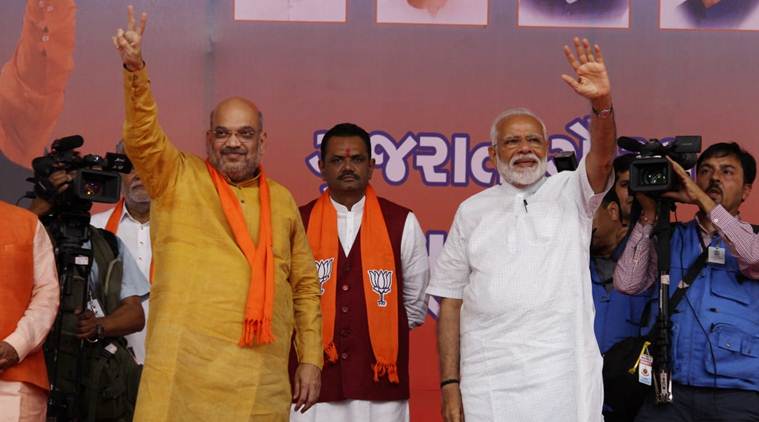
Shah, who spoke before Modi, said, “Once, Gujarat was known for communal riots, for curfews… Once Narendrabhai became the CM, communal riots stopped. Our Narendrabhai removed darkness from villages. Today, we can say with pride that the work of solving the water problem of Gujarat was done under his leadership.”
After the meeting, Modi went to seek the blessings of his mother, Hiraba, in Gandhinagar.